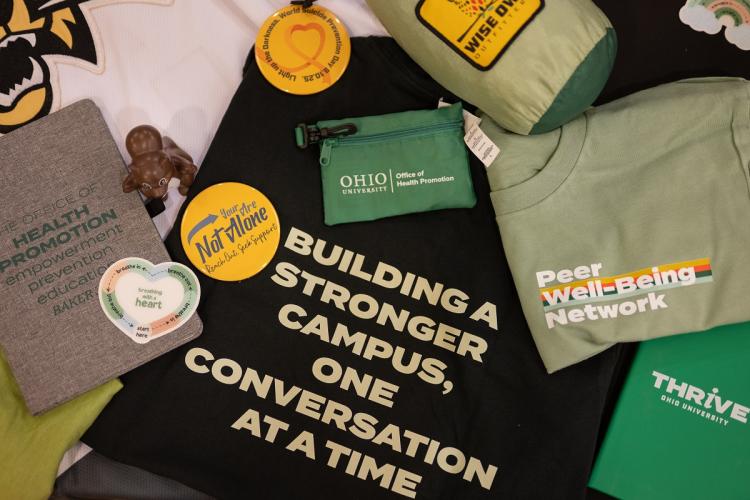
OHIO expands suicide prevention training programs, invites campus to sign up for upcoming sessions

Ohio University has expanded its suicide prevention training programs and is encouraging students, faculty and staff to participate in the programs.
In the state of Ohio, suicide is the second leading cause of death in 15–24-year-olds, according to the Centers for Disease Control. Nationally, about 10% of college students report contemplating suicide in the past year. At OHIO, this would translate to approximately 3,000 students annually.
While many assume that a mental health professional would be the first person someone would turn to in crisis, research shows that peers and loved ones are often in the frontlines.
According to the 2024 Healthy Minds Study, OHIO students reported that if they were experiencing serious emotional distress the top five people they would talk to would be:
- Family member
- Friend (who is not a roommate)
- Professional clinician
- Significant other/romantic partner
- Roommate
Students also indicated that they would talk to one of their professors or academic advisors if their mental health was affecting their academic performance.
A decade of suicide prevention gatekeeper training
In 2014, OHIO’s Counseling and Psychological Services (CPS) recognized the need to equip everyday members of the campus community in suicide prevention training. This led to the launch of Bobcats Who Care, a gatekeeper training program designed to help participants recognize and respond to individuals in distress.
Bobcats Who Care is modelled after Campus Connect Training developed by Dr. Cory Wallack at Syracuse University, designed specifically for a college/university community. It is an experiential training focused on enhancing participants’ knowledge, awareness and skills concerning college student suicide and mental health crisis. Over 175 colleges and universities across the US have been trained in this program.
Over the past 11 years, thousands of students, faculty, and staff have completed Bobcats Who Care training at Ohio University. All Housing and Residence Life staff, including resident assistants as well as Student Affairs staff, complete this training as part of their onboarding.
“Through Bobcats Who Care, we’ve seen how even one trained person can make a difference,” said Dr. Stephanie Maccombs Hunter of Counseling and Psychology Services. “It empowers those who go through the training to recognize distress and respond with compassion and confidence.”
Expanding access: Introducing QPR
This year, the Office of Health Promotion, introduced additional gatekeeper training: Question, Persuade, Refer (QPR), a nationally recognized suicide prevention training designed to teach participants how Question someone who may be struggling, Persuade them to seek help, and Refer them to appropriate resources. QPR can be completed in 60-90 minutes. The hope is that by offering more training options, more people, organizations, and departments can find gatekeeper training that best suits their needs and scheduling.
“QPR gives people the skills and confidence to notice warning signs, start a conversation, and offer hope to save lives. We brought it to campus so more people could get trained in just 60 minutes. The more groups we train, the more we can create a campus where no one is alone, and everyone gets the support they need! Let’s make sure every Bobcat knows how to reach out, listen, and offer hope when it matters most," said Taylor Bauer from the Office of Health Promotion.
Get involved
Faculty, staff, and students all play a role in preventing suicide. Becoming a suicide prevention gatekeeper means learning how to listen, respond and connect someone to help when they need it most.
Sign up today to bring a training to your next staff meeting, class, or practice.
In addition, a virtual training will be held on Dec. 11. You can learn more about the virtual training here.
